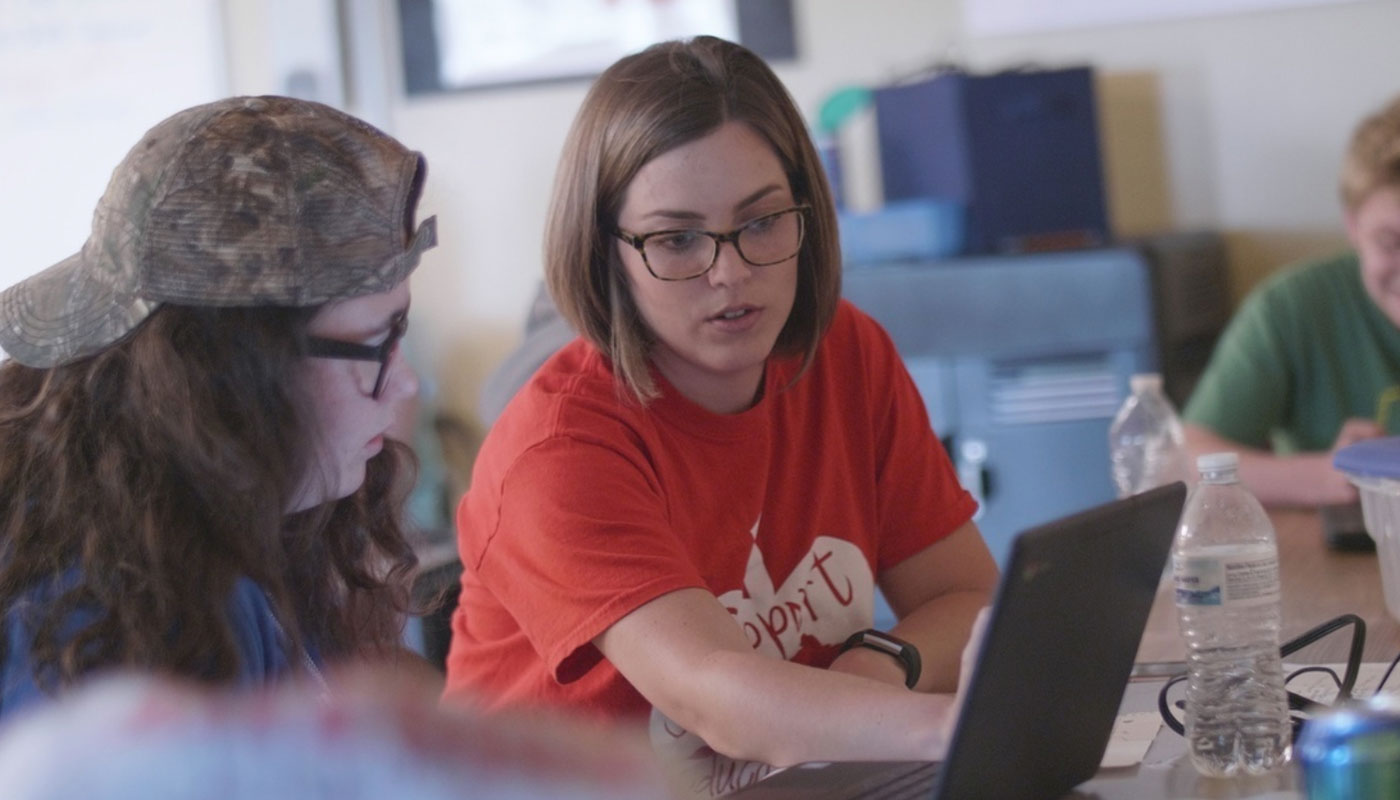
A recent report by the Institute for Education Policy at the Johns Hopkins University shared insights from a review of Providence Public School District (PPSD). Having worked in Providence for the past four years, we recognize many of the stark conclusions made in the report. We have observed chronic challenges at the district. Our program was not designed to directly address the systemic and organizational issues that the Institute of Education Policy’s report has cited in Providence. However, as an organization working with districts across the country, we know that Providence is not alone in these challenges.
Our organization is designed to support schools in meeting the needs of all of their students. We do this by providing schools with free: professional development for their educators; fully customizable curriculum for grades 4-12; support from a coach throughout the year; and a software tool that accelerates learning for students and gives teachers and parents real-time information about student progress. Districts across the country are deciding to work with us because they see the promise and results when the science of learning and development is leveraged in the classroom.
Summit Learning classrooms
There is a rich research base about student learning that too often isn’t a daily part of the student experience. Making these changes isn’t easy. We don’t work with schools to make small, incremental tweaks. Instead, we support them in incorporating research-based practices into their daily instruction — practices that remind us students don’t benefit from memorizing content and regurgitating it in a test; that students don’t learn one way, so we must find novel ways of giving them access to additional learning resources to meet their needs; and that says our teachers should be focused on teaching lifelong skills instead of just content, and through projects instead of lectures. The report shows that Providence doesn’t have the set of conditions in place to fully implement our model.
Since Summit Learning first launched, we’ve learned a lot about the wide range of schools that ask for our support. Here are a few of those lessons learned:
Our model — the curriculum, the way we’ve structured projects, the incorporation of mentoring, and more — is based on more than 100 years of established learning science. There is no debate about whether or not we should be equipping students with lifelong cognitive skills, that has been established. In order to get the results associated with those shifts, classrooms need strong implementations. That means classrooms where students are deeply engaged in what they’re learning, where they are working to apply their knowledge to projects, and where the teacher knows the type of support they need to give each student. The classroom experiences suggested in this report are not reflective of the Summit Learning model.
The teacher should be at the heart of every classroom. Period. It is the relationship between students and their teachers that matters most, and any role that technology plays should be a supporting one. At Summit Learning we know that in order for our model to play out in the classroom as designed, we need to invest in teachers. That’s why we bring teachers together for professional development in the summer, fall, and spring. While we know that no amount of training is ever really enough, we maximize the time we have in order to set teachers up for success.
Summit Learning’s approach to partnerships
Readers of this report might ask themselves some of the questions we’ve asked ourselves as we’ve built our program, including whether we should be partnering with schools and districts who do not have the conditions in place to fully implement the program as designed. We are committed to partnering with schools and districts who are seeking to bring the science of learning into their classrooms. And, we are committed to this work for the long haul. Sure, the path to get the best of learning science into classrooms is difficult. That doesn’t make it less important or urgent. We believe that students deserve the level of differentiation and support that our program offers, and we will continue to find ways of making that path smoother for districts who decide to work with us. We will continue to work with leaders who seek us out, as shown by the fact that our program has grown almost entirely by word of mouth – based on recommendations from one educator to another.
While we have learned a ton about what it takes to implement Summit Learning successfully and have made significant adjustments to our application and onboarding process to improve the quality of implementation, we are also not going to limit our partnerships to schools without challenges. That path — easier though it might be — will not get us to a place where all students have access to the best education — the type of classrooms that are designed around established research and give students the opportunity to learn in ways that model the world around them.
We have seen pockets of strength in our work in Rhode Island, including schools that adapt Summit Learning to meet their needs, like Nowell Leadership Academy. In schools across the country, we have seen educators passionately and deliberately make evidence-based adjustments to their classrooms. It is true that we have seen the most success in districts that have been able to systematically and comprehensively support schools and teachers in making this change happen. Unfortunately, we have also seen the struggles articulated in this recent report. We are ready to work with Providence district leadership as they see fit, in order to consider what role Summit Learning might play in their vision for excellence in the district as they address broader problems in the district.

